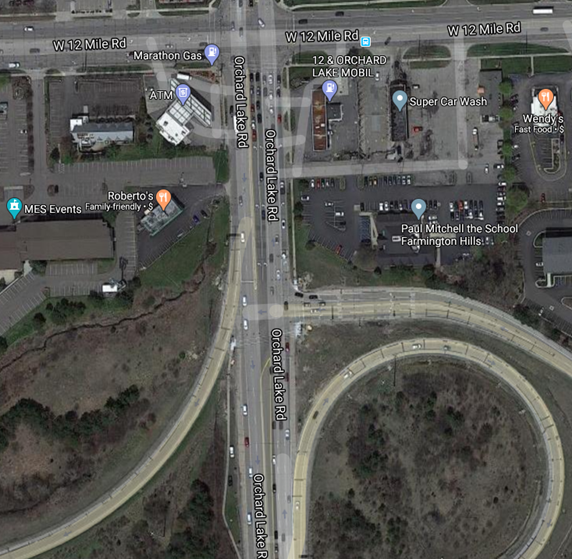Biff’s Grill v DOT illustrates the one recovery rule and demonstrates why an agency is assumed to use its newly acquired property rights to the fullest extent allowed by law.
Two condemnation rules operate in tandem. A property owner is not allowed to demand additional condemnation proceeds from an agency if an agency uses the property rights it acquired in a more onerous manner than originally intended. For that reasons, when an agency acquires rights in a partial taking case, it is assumed that the agency will use those rights to the fullest extent allowed by law.
Biff’s Grill “alleged that its thriving restaurant business at the intersection of Orchard Lake Road and I-696 was effectively destroyed in 1973, when a median strip was installed in Orchard Lake Road. The median prevents northbound traffic from turning left into the plaintiff's establishment which is located on the west side of Orchard Lake Road, just north of I-696.” Biff's Grills, Inc v Michigan State Highway Comm'n, 75 Mich App 154, 155–56; 254 NW2d 824 (1977). The location is currently occupied by a diner that is close to my home – and that I have never tried because of the difficulty in accessing it. Here is the location, which is currently occupied by Roberto’s restaurant.

Traffic can only enter from Orchard Lake Road traveling south and can only reenter Orchard Lake to travel south. The property owner accepted a just compensation payment without understanding the potential impacts of a median – which is another example of why it is important to obtain counsel in these type of matters. The Court of Appeals denied any recovery. Unless the agency violates a contractual promise to construct the improvements in a particular way, absent some action that rises to a taking, a property owner is not entitled to recovery when the agency begins using those rights more injuriously.
However, Michigan law recognizes that “in valuing what is left after the taking, you must assume that the condemning authority will use its newly acquired property rights to the full extent allowed by the law.” M Civ JI 90.12 Partial Taking. Therefore, if an agency takes the right, it must pay for it at that moment, even if it presently has no intention of exercising those rights.
This is the type of trap that can spring upon property owners that are unaware of their rights. If you have any questions, please do not hesitate to contact me.